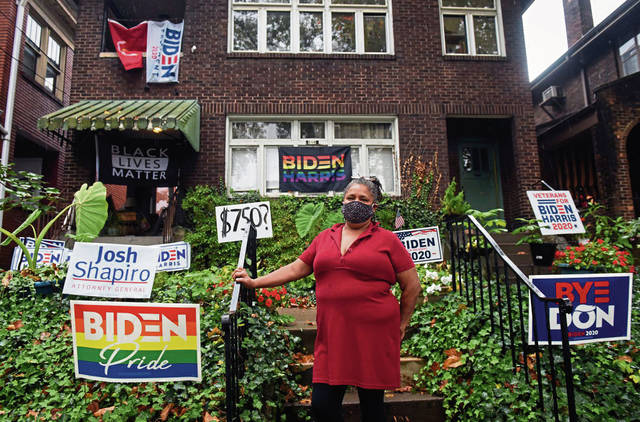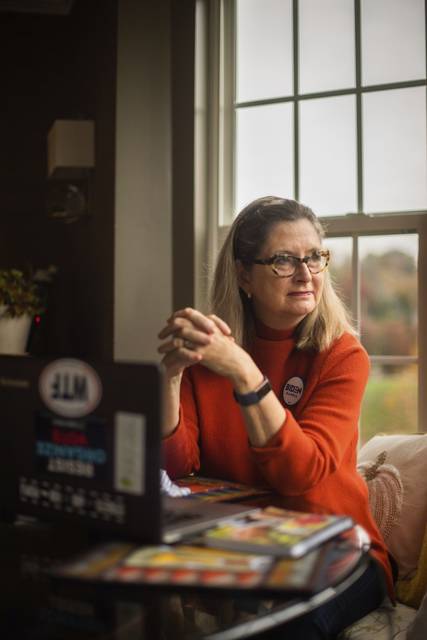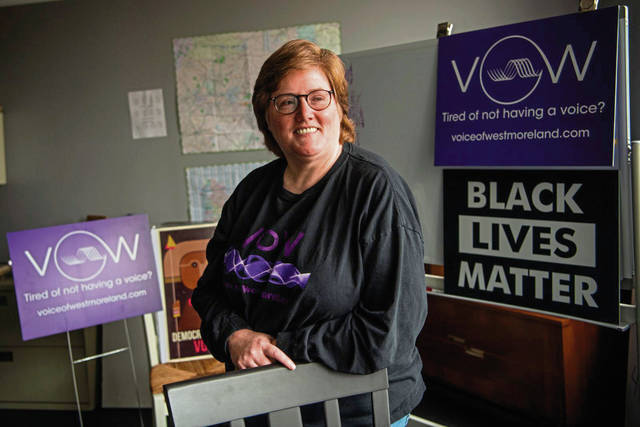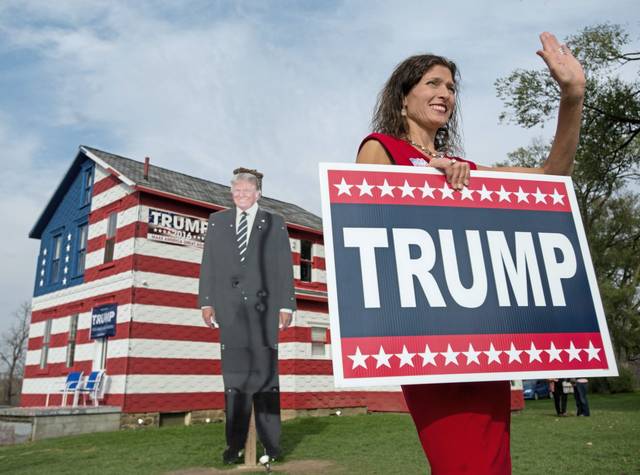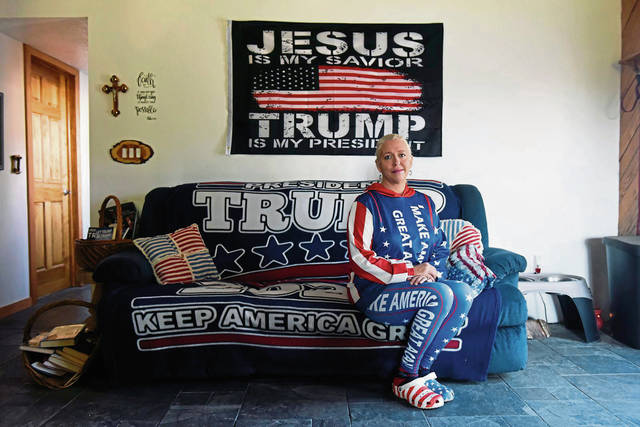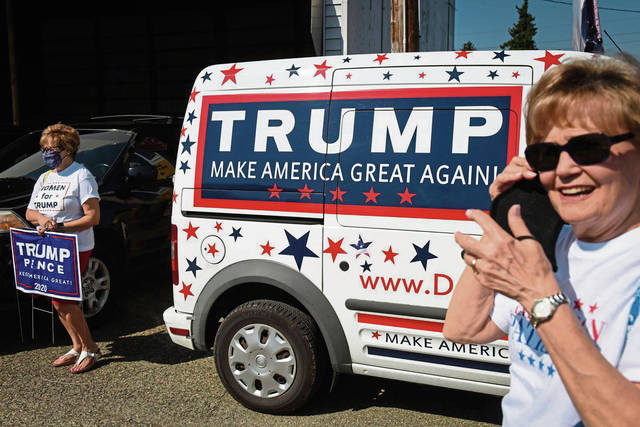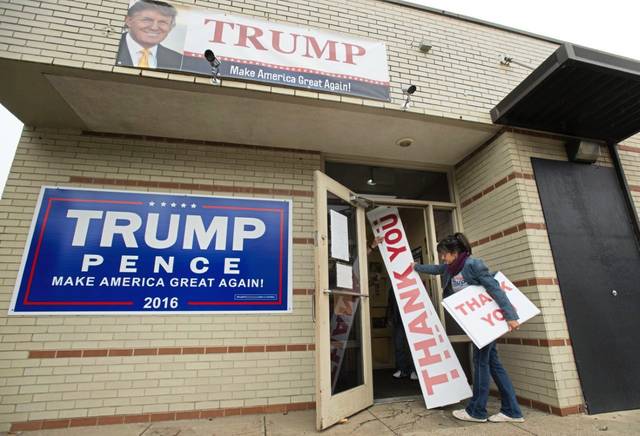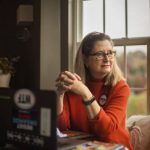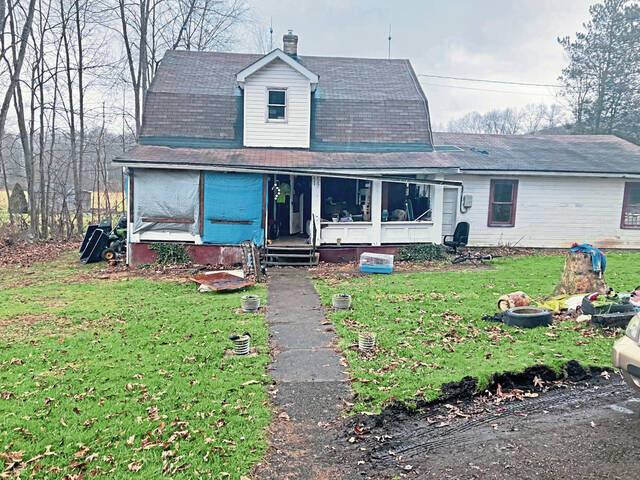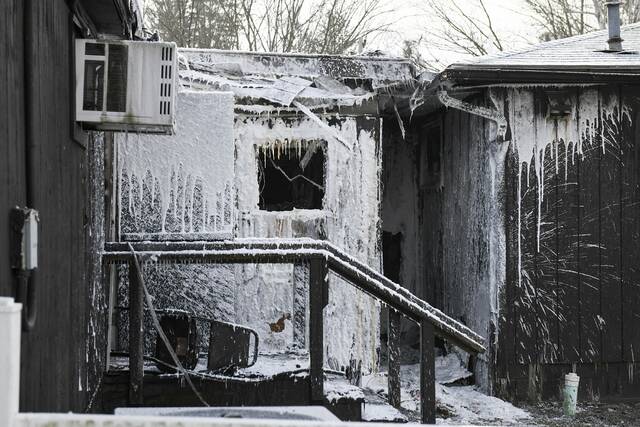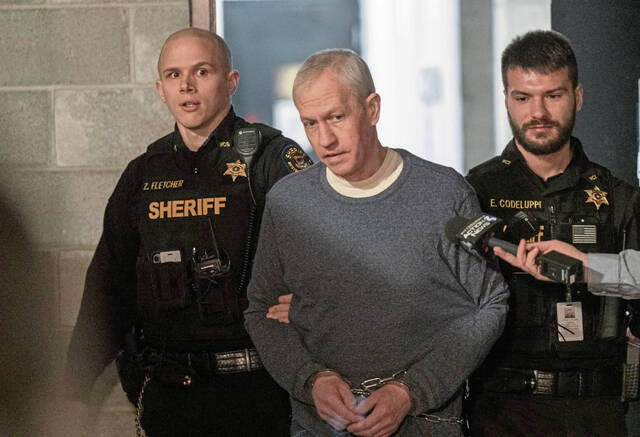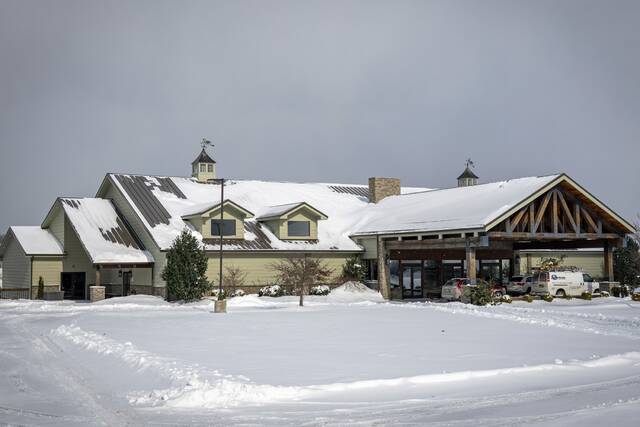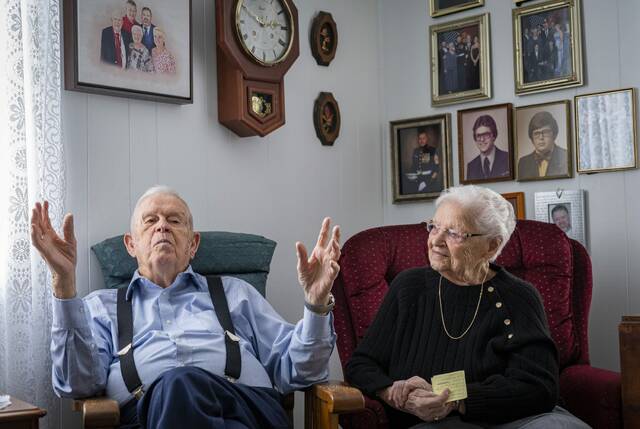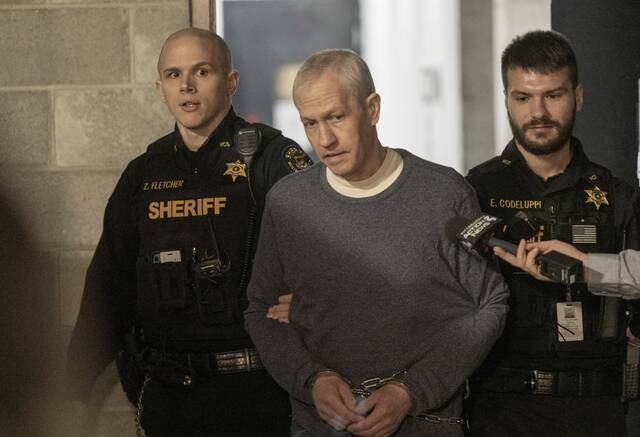Stasia Vernallis knew she was onto something when Facebook groups of frustrated female voters began cropping up across Pennsylvania just days after the 2017 Women’s March on Washington.
“We counted 550 grassroots organizations from January to July,” Vernallis said.
Like the suffragists who rallied for years in towns small and large before they won the right to vote in their first presidential election — the Nov. 2, 1920, Cox-Harding race 100 years ago — the groups who coalesced around their outrage at Donald Trump’s election were a force to be tapped.
Vernallis, a retired lawyer from O’Hara Township in Pittsburgh’s northern suburbs, gathered a group of like-minded friends with expertise in social media, political organizing and branding to create a resource for those groups. Eventually, Vernallis said Progress PA became “a sort of motherboard,” a resource with 35,000 lines connecting various local groups, helping amplify their voices.
Experts say those voices, decades in gathering volume, could be significant in Tuesday’s election.
The Center for American Women in Politics at Rutgers University has tracked their growing influence. Although more women than men have voted in every presidential election since 1964, it wasn’t until 1984 that the proportion of eligible women voting outpaced the proportion of men who went to the polls.
Parsing years of data, Rutgers researchers found women have outvoted men in every presidential election in the last 40 years.
In 2016, 73.3 million women cast ballots compared to 63.8 million men. Of those women, an overwhelming majority of Black and Hispanic women supported Democrat Hillary Clinton — the first female presidential candidate for a major party. More white women, however, voted for Trump (47%) than Clinton (45%), a Pew Research Center study found.
Trump has acknowledged the importance of women voters during a series of rallies across the country. At a rally in Johnstown last month, he begged, “Suburban women, will you please like me?” Last week in Michigan, he told female voters “We’re getting your husbands back to work.”
Recent polls suggest there are numbers that underscore his urgent pleas to women voters.
Last week, an Economist/YouGov national poll of 1,500 voters found Trump lagging Biden by 20 points among women voters. A mid-October Fox News poll of 1,100 Pennsylvania voters found Trump lagging behind Biden by 12 points in the must-win Keystone State.
Called to action
Vernallis and women such as Marie Norman, Tracy Baton and Clare Dooley realized they were sitting on a powder keg long before the president acknowledged the force of the female vote in 2020.
They were among the women, with an assist from some men, who reached out and built a vibrant network of grassroots organizations.
Dana Brown, director of the Pennsylvania Center for Women and Politics at Chatham University, and Lara Putnam, a history professor at the University of Pittsburgh who studies the emergence of grassroots groups, watched the movement unfold here.
“These women said they never thought Donald Trump could be elected,” Putnam said. “His election didn’t fit their values or where they thought the country was going.”
Brown said women began showing up on the ballot in Pennsylvania in record numbers in 2018.
“Groups organized and found a local office, whether the school board or town council or country level offices, and they recruited people to run,” Putnam said. “In some areas, there were schools that had never had a Democratic school board member, and they set out to change that.”
In Westmoreland County, the Voice of Westmoreland, a progressive grassroots organization, was born on a cold day in February 2017 when a handful of like-minded people showed up at the county courthouse in Greensburg to rally against Trump’s Muslim travel ban.
Clare Dooley, a lawyer who opted for a second career as a nurse, is one of the founders of VOW. She said the group that focuses on health care, social justice, racial injustice and environmental issues, among other things, has since hired a community organizer and now counts about 225 members who pay monthly dues.
When county commissioners were slow to provide drop boxes for mail-in ballots, VOW petitioned the county to act. They’ve made thousands of calls to canvass voters about the issues and are in the midst of a get-out-the-vote campaign for Democrat Joe Biden.
“We’re in it for the long run. Elections are how you change things,” Dooley said.
In Allegheny County, Progress PA went underground when they found they were being trolled online by conservative groups.
“So we created the Southwestern Pennsylvania Garden Club so the Republicans couldn’t find us, and we sprouted 10 candidates for state office,” Vernallis said.
Early on, the group flexed its political muscle in opposition to former Rep. Keith Rothfus, rallying outside the conservative Republican lawmaker’s Ross office at the intersection of Babcock Boulevard and Route 19 for 91 consecutive weeks.
“We got to the point where commuters knew us and honked their horns when they saw us,” Vernallis said.
Rothfus, who was elected in 2012, lost his seat in 2018 to Conor Lamb, a Mt. Lebanon Democrat who local women’s groups supported with phone banks and door-knocking campaigns.
Tracy Baton, 57, of Pittsburgh, is a social worker with a degree in community organizing who had studied authoritarian governments in South Africa as a Fulbright Scholar. She organized the annual Pittsburgh Women’s March for those who wanted to support the movement but couldn’t go to Washington, D.C. She also has been active in Indivisible Pittsburgh.
Baton, of Regent Square in Pittsburgh’s East End, saw the women she met marching as natural force for grassroots organizing. They had experience volunteering for school groups, athletic clubs, churches and libraries and other community groups.
“Many of the women have done all kinds of organizing in their own communities. That adds over the years,” she said.
She’s encouraged by how the movement has grown and spread.
“I’ve been distributing swag for the (Biden) campaign, and I had a woman contact me from Blair County. I didn’t even know where that was. (It is about 120 miles from Pittsburgh on the other side of the Laurel Highlands) And she came down and I gave her signs and bumper stickers and a whole stack of stuff to take back Blair County,” Baton said.
Marie Norman, 55, a professor at Pitt’s medical school, felt she had to do something to counter Trump.
She and her husband created the Order of the Phoenix, a Facebook group that referenced a Harry Potter book. They got their feet wet canvassing for Lamb in Washington and Westmoreland counties in his first race, a special election to fill a vacant congressional seat in 2017. When districts were realigned in 2018 and Lamb faced Rothfus in another tough race, they reprised their act.
Today, the Order of the Phoenix boasts about 8,000 members and has been active at farmers markets handing out Biden signs.
Growing grassroots
Putnam, the Pitt professor, said grassroots movements typically spring up among groups that are out of power. She pointed to the Tea Party’s birth after the election of Barack Obama.
In 2016, one the national Tea Party founders, Amy Kremer of Atlanta, formed Women for Trump. The national online organization branched off as women like Tricia Cunningham, a Westmoreland County native with a background in the Tea Party and talk radio, took up the torch from her Washington Township home.
Cunningham, 48, has traveled far and wide to speak for Trump. She promoted and participated in a parachute jump for the campaign in 2016, organized a boat parade on the Allegheny River this year and did a 21-state flag drop tour for the president this summer.
Jill Cooper, 58, of Murrysville organized for Trump back in 2016 when he was a long-shot candidate. Like Cunningham, Cooper became active in politics after the Obama election. When the former corporate sales and marketing executive — she was a vice president for a division of Alcoa before leaving the work force to raise her children— heard Trump might be carrying the banner for the GOP in 2016, she set to work trying to get a Trump office in Murrysville.
Although the Trump campaign turned her down and some members of the local committee were not supportive, Cooper brought together like-minded Republicans and rented a former bank building in the Village of Murrysville plaza along Route 22 to open the Trump Victory Center four years ago.
“Trump supporters needed a place to come together to show they were not alone. People thought we were racist, bigoted, sexist and homophobic, and that’s not what we were. I found place on Route 22 where 30,000 cars go by a day. We paid the rent and had a very successful center,” Cooper said.
This year, when her group approached the Trump campaign, officials saw that the grassroots organization had developed deep roots and agreed to staff an official field office in the community.
At the other edge of Westmoreland County, Leslie Rossi, 50, of Unity has become a star in Republican circles for her Trump House.
In 2016, Rossi converted an old frame house near Latrobe into a Trump shrine. The two-story house painted in a vibrant red, white and blue flag motif boasts a 12-foot-tall Trump cut-out facing the road. It attracts thousands of visitors every week who come to pick up campaign paraphernalia, take photos with the giant Trump image and sign the guest book.
Rossi, who has gained international headlines as “the Trump House lady,” snared an invitation to the White House to see Trump accept the 2020 GOP nomination. She also keeps a supply of voter registration forms at the house and has assistants who help register new voters or assist disillusioned Democrats change their registration.
While Cunningham and Rossi are visible ambassadors for Trump, Vernallis and Norman concede theirs is a more low-key approach based on building relationships and networks.
It has seeded efforts throughout the region in communities like Murrysville, Peters and Somerset — all decidedly Republican areas that have been solidly in Trump’s corner.
This year, those communities as well as rural counties across the region that predominantly backed Trump in 2016 are seeing signs of support for the Biden-Harris ticket.
Vernallis said her network raised $110,000 this year. The money went to put up 55 billboards in 20 counties that many had written off to the GOP and Trump — places where there were few signs of Clinton’s campaign in 2016.
The billboard company recorded 5 million impressions last week from drivers passing the highway signs.
“You are going to see a far better showing for Democrats in rural Pennsylvania,” Vernallis said. “They know they’re not alone now.”


